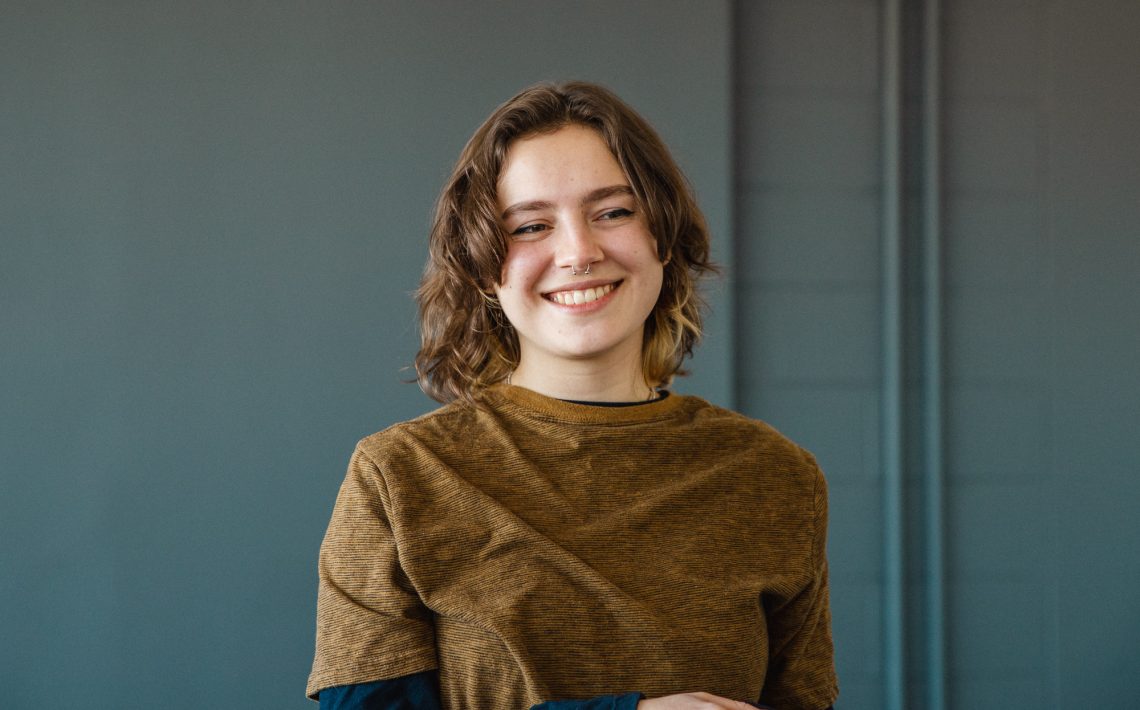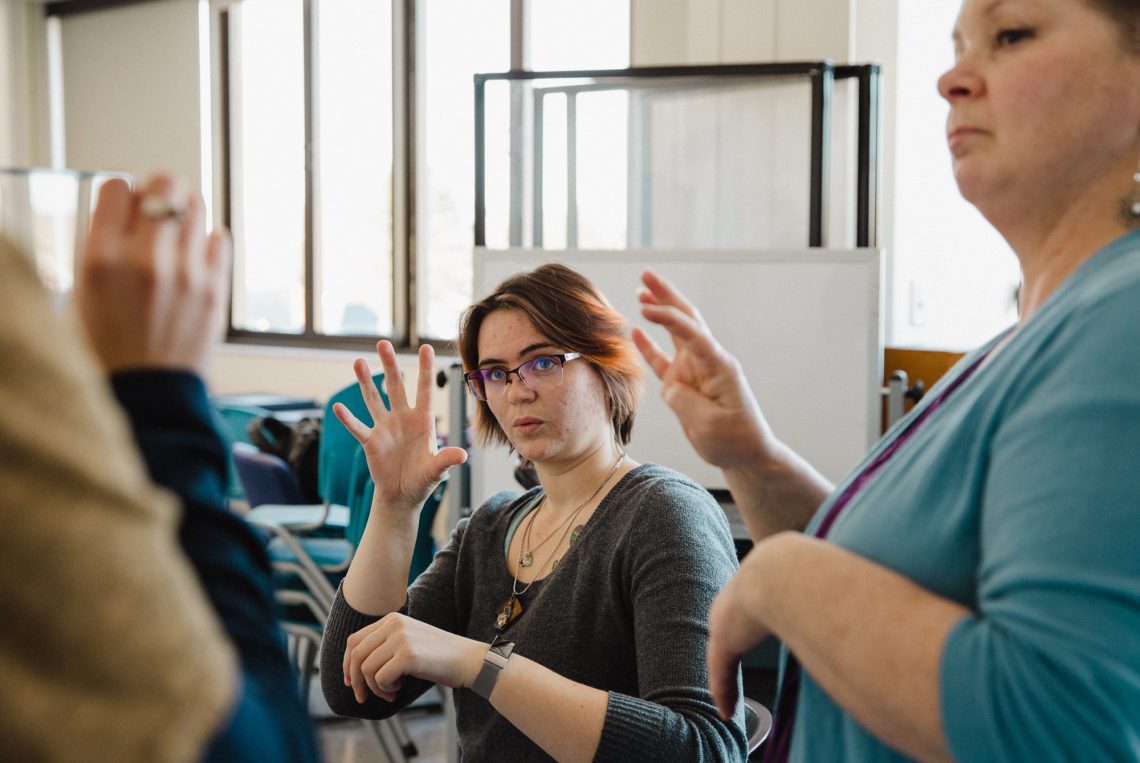Sadie Fischbeck was in high school when she first considered becoming an American Sign Language interpreter. But she’d need advanced training, a college degree. She’d need a dedicated ASL program.
She found it just a couple of states away from her home in Vermont.
“I realized that USM actually has one of the best,” said Fischbeck, now a third-year student in the program and part of the USM ASL Club.
Formed in 2000, the ASL/English Interpreting program started with a grant from the Maine Department of Education. The program was one of the first in the country and was initially very tiny.

“The whole thing sort of existed on Fridays in the basement of Payson Smith (Hall). Everything was there, it was a weekend college. And it just grew tremendously,” said Dr. Judy Shepard-Kegl, who started the program and is now Linguistics Professor and Director of the Signed Language Research Lab.
Today, ASL/English Interpreting is a concentration within the Linguistics major. The ASL program averages seven to 10 faculty members and has eight to 15 graduates a year. It was first accredited in 2009 and most recently reaccredited in 2021.
Classes are popular with students both inside and outside the major. Introductory ASL classes, which can count toward core requirements, routinely fill and have waiting lists.
“It’s one of the languages used in the United States that you could encounter anywhere. It would be helpful for anybody to know,” said Dr. Dana McDaniel, Professor of Linguistics and Chair of the department. “It’s a very useful language. It’s a good language to put on your resume, frankly. Anytime you do absolutely any job and can say, ‘Oh, yeah, I know some ASL,’ it’s a plus.”
Students who major in ASL are actively sought after. Despite a recent licensing snag in Maine — state rules changed a couple of years ago and inadvertently made full licensing for interpreters a challenge, so lawmakers are working on a fix — USM’s graduates are all but guaranteed a job. Many go on to medical or educational interpreting in Maine or out of state. Some develop careers in an adjacent field but still connected to the Deaf community, such as teaching or social work.
“Prospects are very, very good,” Shepard-Kegl said.
But while USM’s ASL students get a rigorous, top-notch education in the classroom, it’s their time outside class that really makes the program unique. Students are deeply involved in the local Deaf community, through the annual Maine Deaf Film Festival, the ASL Club, internships, working with children at the Governor Baxter School for the Deaf, volunteering opportunities, and special events.
“We can take them part way there, the Deaf community is going to take them the rest of the way,” Shepard-Kegl said. “If you want to be an interpreter or do some ASL stuff, you really need to immerse yourself in the local community.”
That’s one reason Maia DeRosear, an ASL student and president of the ASL Club, has loved her time at USM.
“Our program is very involved in the Deaf community. . . a lot of intermingling. You don’t see that at a whole lot of programs. You see a lot of interpreting programs just kind of pull students through. They get involved with the community on campus, but they don’t get to meet the larger community they’re living in,” she said. “We do a really great job intermingling our community at USM and the larger Deaf community around Portland, and the interpreting community as well.”
It was one of the things that drew Fischbeck to the USM program.

“I had heard a lot about the professors and how good they were,” she said. “I came for a tour day and my tour guide was an ASL major and she was able to talk me through the program. It sounded really good. It sounded like there was a really good community here that a lot of other programs just didn’t have. That’s what I wanted.”
And that community is what Fischbeck got — even with COVID-19 and all the complications that came with it.
“For sure, 100%,” she said. “I think during the pandemic it was a little hard to set it up, but we did it. I think we have a really strong group of people here.”
As Fischbeck and DeRosear enter their last year in the program, both are considering a life, and career, after graduation. Both want to become interpreters. DeRosear wants to work in a medical setting, such as a hospital. Fischbeck is considering all options, including medical, educational, and other interpreting.
“I’m open to wherever the program takes me,” she said.
American Sign Language Club – YouTube

